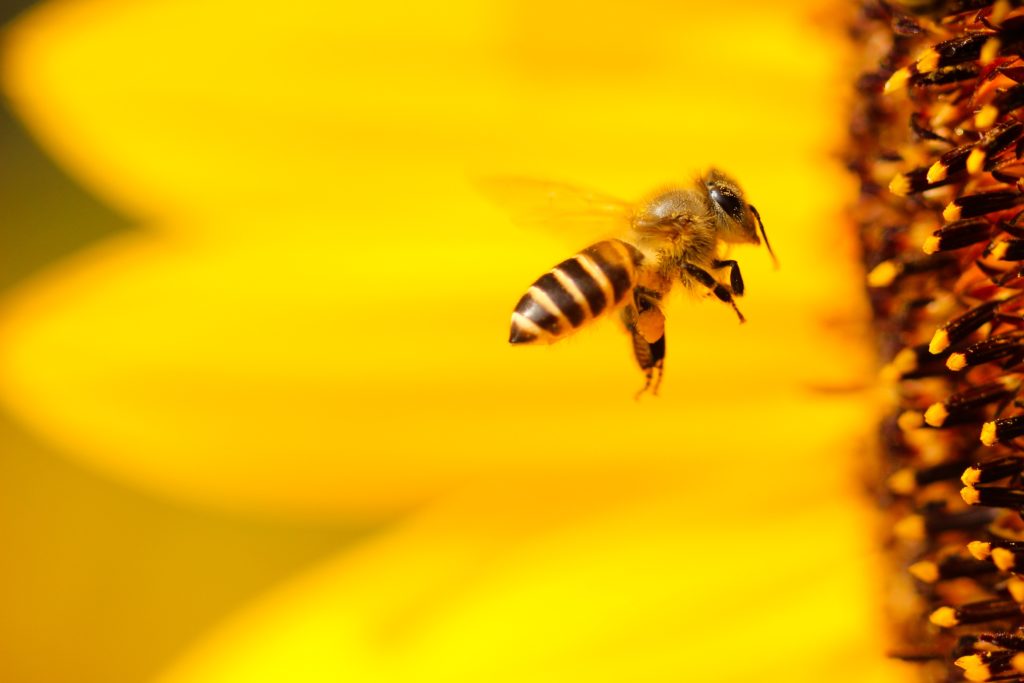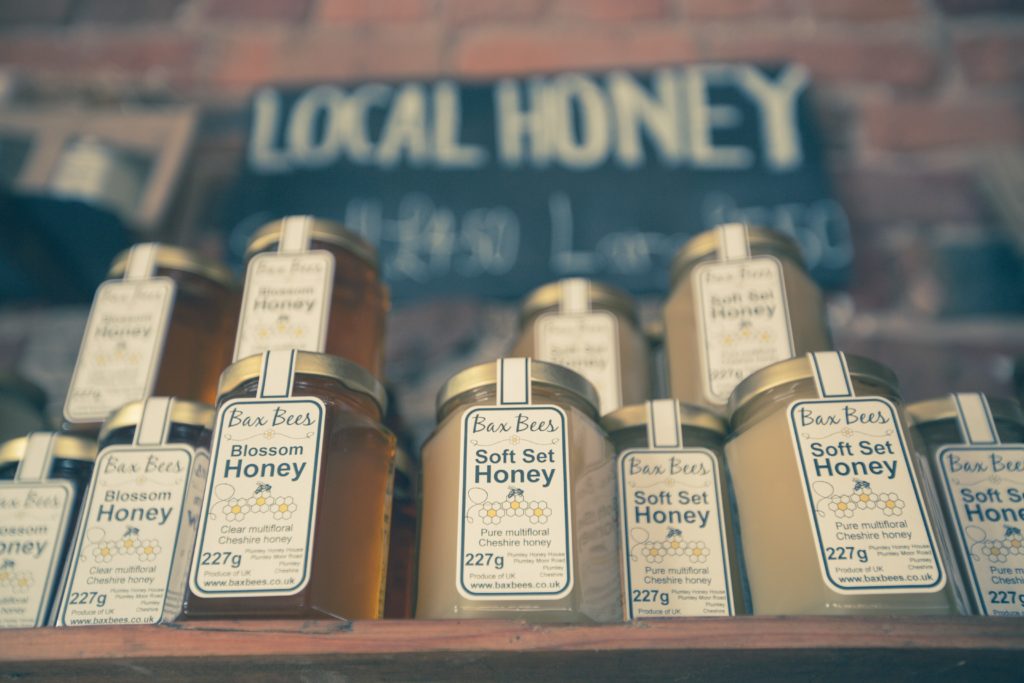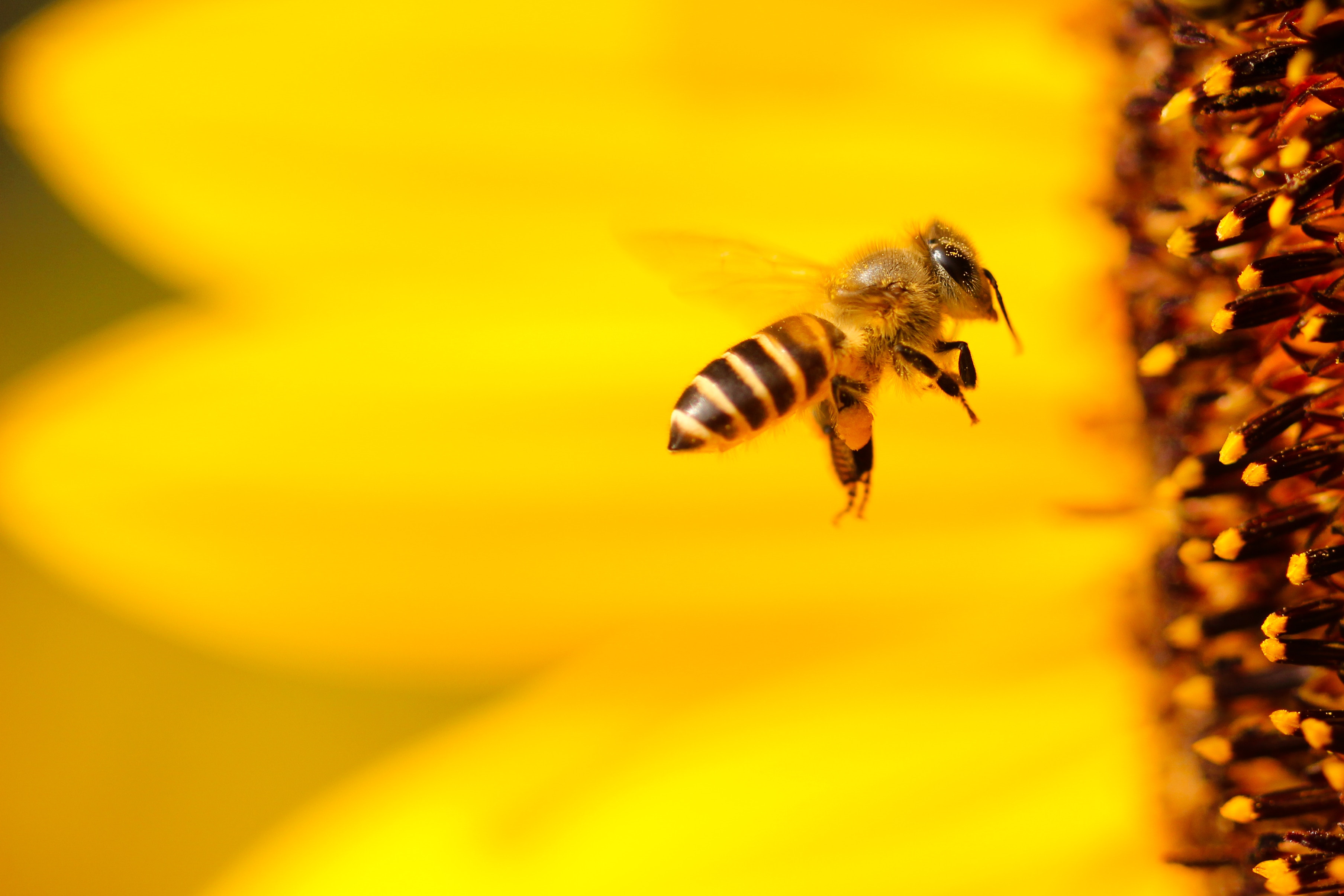
A lot of people don’t realize that vegan’s also stay away from honey! Honey has many health benefits and to be honest, was the very last animal byproduct that I gave up. I had a hard time with this because I love tea! I’ve always been a night time tea drinker and loved loved loved my honey! But now, I love the bees more.
So whats wrong with drinking honey? Are the bee’s harmed, or upset? Let’s find out!
Honey, What’s the Matter?
We as humans feel the need to own everything. Everything animals do, or create, is for us, right?
Truth is bee’s work their little bums off to produce a baby 1/12th of a teaspoon of honey in their ENTIRE LIVES. Imagine? You work SO hard, a lifetime of effort, and all you produce is LESS than a teaspoon. 1/12th!
To vegans this is cruelty and exploitative to steal all of their hard work. Honey is a necessity to the bees, without it they will die.
What Is Honey, Anyway?

Honey is the bees main source of energy. It would mean the end of their lives if honey wasn’t available, they use this especially during the colder months. Honey bees are the producers of honey. A little bee will visit 1500 flowers you guys in its life span! A typical visit to a flower involves extracting the nectar from the flower, storing this nectar in their “honey stomachs” and bringing it back to the hive.
What is a honey stomach? It’s the bee’s second, separate stomach in which enzymes begin to break down the nectar into honey. (1)
Our little honey bee will return to its hive, carrying the nectar, where it will be divided between all members of the hive. Some for everyone. Sharing is caring.

Why Vegan’s Avoid It
So now that we know how the honey is created – HOW is this process affecting the bees?
Beekeepers will extract ALL of the honey in the hive and replace it with a sugar substitute for the bees to enjoy. However, What we are unaware of, is that this replacement lacks essential nutrients for the bees that can naturally be found in honey.
Our friends at The Vegan Society explain, “In conventional beekeeping, bees are specifically bred to increase productivity. Already endangered, this selective breeding narrows the population gene pool and increases susceptibility to disease and large-scale die-offs. Diseases are also caused by importing different species of bees for use in hives.” (1)
The beekeepers will also clip the queen bee’s wings to ensure that she cannot leave the hive and start over somewhere new. Anything to increase productivity.
How Does This Effect Our Environment?
“Mass breeding of honeybees affects the populations of other competing nectar-foraging insects, including other bees. Overwhelmed by the ever-inflating quantities of farmed bees, the numbers of native bumblebees have declined.” (1)
What Can We Replace Honey With?
So if we honor our little bee’s and let them keep all their hard earned work, what will WE eat? We’re humans and let’s get real – our needs CLEARLY based on 2019 and where we are – matter the most. SO, what else can we eat if honey is off the table?
Our 3 Favorite Honey Replacements
**This post may contain affiliate links, as an Amazon Associate I earn from qualifying purchases at no extra cost to you, these are all products I recommend, I won’t put anything on this page that I haven’t verified or personally used.**
- Agave Nectar – one of the more popular alternatives, agave nectar comes from the agave plant. It’s made by heating and filtering the sap from the plant. When buying agave you’ll notice the formula is labeled either light or dark – much like corn syrup. So depending on your need, make sure you’re paying attention to the label!
- Maple Syrup- a very common mainstream sweetener and often a breakfast requirement! Real maple syrup and fake maple syrup are often found on the same shelf. So instead of using a high fructose corn syrup chemical mixture make sure what you’re buying is pure organic maple syrup! Trust us – you’ll never go back. We love to use maple syrup in our FAVORITE smoothie of all time!
- Corn Syrup – (dark or light) This is a sweetener made from the starch of corn, also known as glucose syrup and is used to soften texture in foods! Very very universal sweetener!
Other Honey Replacements!
- Molasses- this is a byproduct of making sugar out of sugar beets and cane, molasses is thick. It’s super-rich in vitamins and minerals, and the blackstrap variety is known as a great source of iron!
- Date Paste- guys…if you haven’t worked with date paste in the past, you’re FOR REAL missin’ out. This is the stuffffff! It’s super easy to make on your own at home by blending pre soaked Medjool dates with water. SO so yummy. Said to be fantastic for the very pregnant woman because it will shorten labor times as well as the risk of inducing.
- Coconut Nectar– Created from coconut tree sap, it contains vitamins B and C, several minerals and up to 17 amino acids! This guy packs a mean punch. Has been shown to help aid in weight loss! It’s also the preferred go-to honey substitute for diabetics!
- Barley Malt Syrup– created from sprouted barley! We’ve never actually tried this one. Reviews say it’s not as sweet as traditional sugar but comparable to a malt flavor. Commonly used to sweeten baked goods.
- Brown Rice Syrup– vegan AND GF honey substitute! Holla! You can easily use this over pancakes in the morning and have all your guests asking you, what IS this syrup! It’s delicious, not too sweet (less sweet than sugar) we speak from experience!
The Gist Of It
We love bees. The honey bee actually only has 7 known species and has been increasingly leaning towards endangerment. We strongly believe humans should leave the bees alone and let them reap the product of a lifetime of hard hard work – a baby 12th of a teaspoon of honey.
Luckily for humans, we don’t need honey to ensure survival. There are TONS of vegan replacements: agave nectars, maple syrup, date syrup, and molasses are all great options!
Wrapping it up, let’s let our bees live and enjoy their OWN honey. These bees do not belong to us, nor does their hard-earned work. The sooner we as a species learn that – the happier and healthier our planet will be.
Take the high road, FEMPIRE, help to change the world and make a difference!

References:
- “The Honey Industry.” The Vegan Society, www.vegansociety.com/go-vegan/honey-industry.
